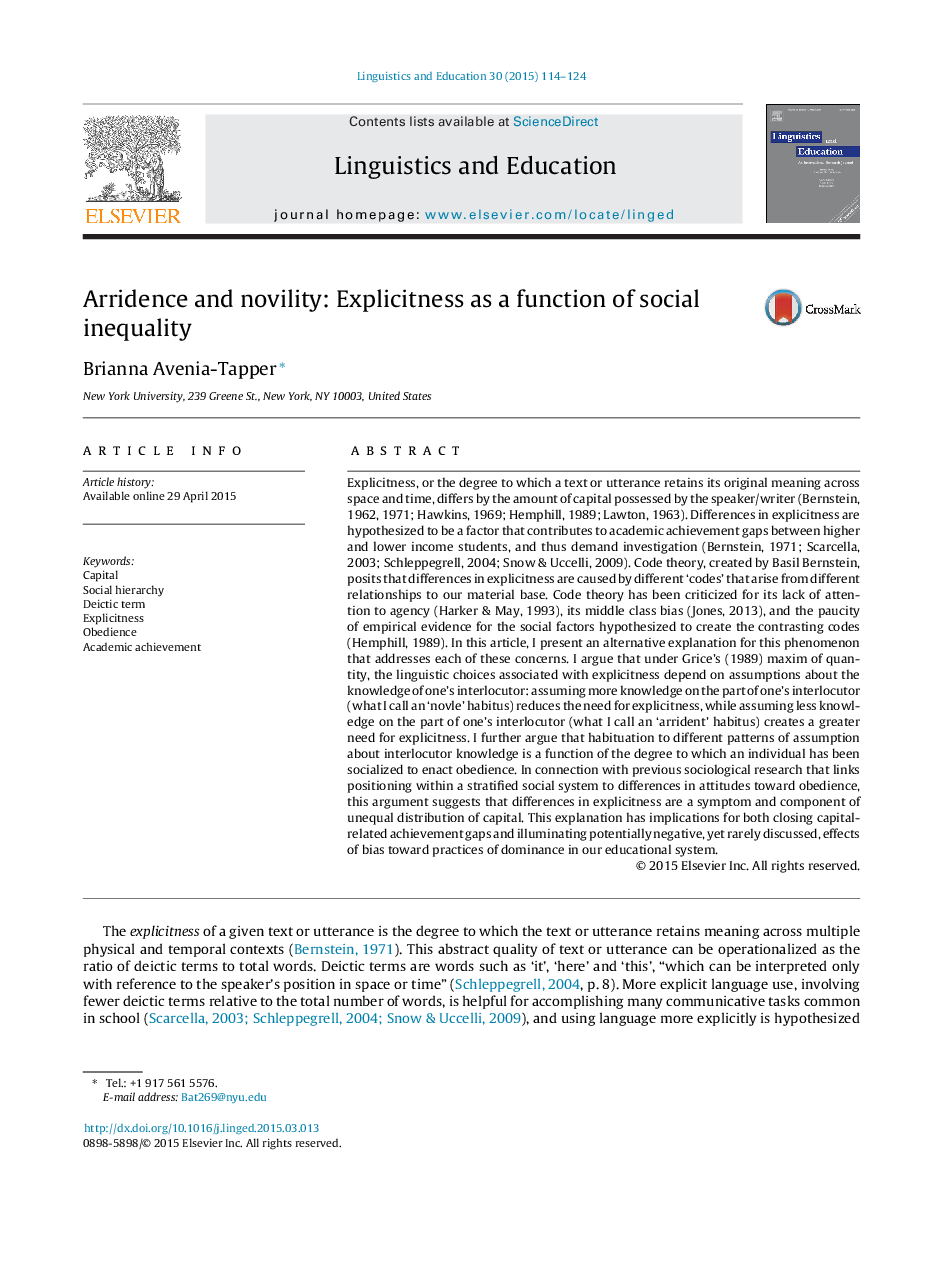| کد مقاله | کد نشریه | سال انتشار | مقاله انگلیسی | نسخه تمام متن |
|---|---|---|---|---|
| 366087 | 621346 | 2015 | 11 صفحه PDF | دانلود رایگان |
• Arridence.
• Novility.
• Explicitness is a function of arridence and/or novility.
• Arridence is antithetical to obedience; novility is conducive to obedience.
• Obedience is a function of power or capital.
• Therefore, explicitness is a function of power or capital.
Explicitness, or the degree to which a text or utterance retains its original meaning across space and time, differs by the amount of capital possessed by the speaker/writer (Bernstein, 1962, 1971; Hawkins, 1969; Hemphill, 1989; Lawton, 1963). Differences in explicitness are hypothesized to be a factor that contributes to academic achievement gaps between higher and lower income students, and thus demand investigation (Bernstein, 1971; Scarcella, 2003; Schleppegrell, 2004; Snow & Uccelli, 2009). Code theory, created by Basil Bernstein, posits that differences in explicitness are caused by different ‘codes’ that arise from different relationships to our material base. Code theory has been criticized for its lack of attention to agency (Harker & May, 1993), its middle class bias (Jones, 2013), and the paucity of empirical evidence for the social factors hypothesized to create the contrasting codes (Hemphill, 1989). In this article, I present an alternative explanation for this phenomenon that addresses each of these concerns. I argue that under Grice's (1989) maxim of quantity, the linguistic choices associated with explicitness depend on assumptions about the knowledge of one's interlocutor: assuming more knowledge on the part of one's interlocutor (what I call an ‘novle’ habitus) reduces the need for explicitness, while assuming less knowledge on the part of one's interlocutor (what I call an ‘arrident’ habitus) creates a greater need for explicitness. I further argue that habituation to different patterns of assumption about interlocutor knowledge is a function of the degree to which an individual has been socialized to enact obedience. In connection with previous sociological research that links positioning within a stratified social system to differences in attitudes toward obedience, this argument suggests that differences in explicitness are a symptom and component of unequal distribution of capital. This explanation has implications for both closing capital-related achievement gaps and illuminating potentially negative, yet rarely discussed, effects of bias toward practices of dominance in our educational system.
Figure optionsDownload as PowerPoint slide
Journal: Linguistics and Education - Volume 30, June 2015, Pages 114–124
